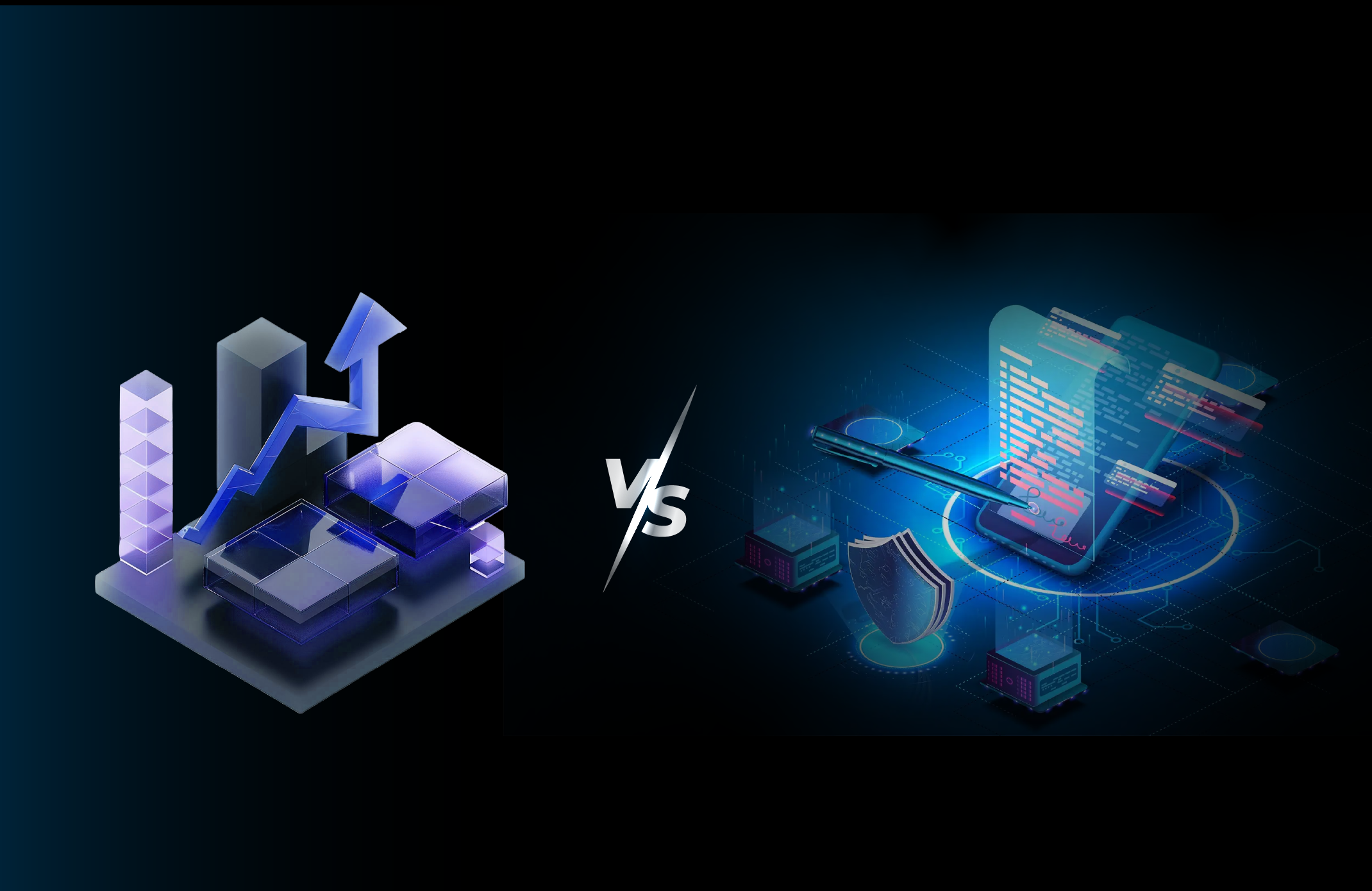Cryptocurrencies have become extremely popular for trading purposes. One can engage in making price forecasts for different assets without necessarily owning them through both perpetual futures contracts and traditional futures contracts. However, the machinations are far from the same. It is upon understanding these differences that one can be able to know the kind of contract to adopt for use in a trading strategy.
Understanding perpetual vs futures is essential for traders choosing between long-term structure and short-term flexibility.We now break down the differences between perpetual futures and traditional futures as well as give real-life examples of how traders can benefit from each.
Futures Contracts in Crypto Trading
A futures contract is an agreement between two parties; one agrees to buy an asset or sell an asset at a specified price to another party at a designated date in the future. In short, futures come from early financial markets such as commodities and stock. However, today they are very commonly traded in cryptocurrency markets, as well.
The futures contracts allow traders in crypto trading to trade with leverage on their positions. Thus, they can make larger trades than would be possible using the initial capital; hence, they offer both the long positions which are mainly buying and the short positions which are mostly selling.
This forms the base for understanding perpetual vs futures contracts in crypto trading.
Differentiation Between Perpetual Futures and Traditional Futures Contracts
Even though perpetual and traditional futures contracts share a lot of similarities, they operate under different mechanisms and operate quite differently.
The difference between perpetual and futures contracts becomes clearer when examining expiration, settlement, funding, and leverage.
1. Expiration of Contracts
The main difference between perpetual and traditional futures contracts is that the latter has the date of a contract’s expiration.
Traditional Futures Contracts:
These contracts have an expiry date. When such futures contracts reach their expiry date, the holder is to settle the contract by a particular date. It is either physically settled—where the two parties settle the exchange of the asset—or cash settled—where the difference is paid from the contract price and the market price.
Perpetual Futures Contract:
This contract doesn’t expire. The traders can hold their positions for as long as they comply with the margin required. Flexibility in perpetual contracts is very popular in the cryptocurrency market.
This flexibility is a major reason traders compare standard futures vs perpetual futures.
2. Settlement Process
Traditional Futures Contract:
Upon expiry of the contract, settlement occurs. In the event of receiving underlying assets, the trader will receive it. In the event of cash settlement, he will receive the difference between the spot price and Future price.
Perpetual Futures Contracts:
There is a funding mechanism that continually funds the contracts to keep the price of the contract closed to the actual price of the underlying asset.
This highlights perpetual futures vs standard futures in terms of continuous settlement.
3. Funding Mechanism
Traditional Futures Contracts:
No funding mechanism. The contract gets settled at expiration.
Perpetual Futures:
Funding rates are periodic payments from the buyer to the seller. This ensures the price of the perpetual contract remains in line with the spot price. Once prices for the contract deviate from those of the underlying asset, the funding mechanism incentivizes their convergence back to these prices.
This funding structure explains what is the difference between perpetual and futures contracts in live markets.
4. Margin Requirements
Traditional Futures Contracts:
Margins are calculated in terms of contract size and market risk at the time of trade. In traditional financial markets, the leverage is capped in most cases.
Perpetual Futures Contracts:
Crypto exchanges provide substantial amounts of leverage on perpetual futures contracts (up to 100x), which implies more risk but also more reward.
This is a key distinction in perp trading vs futures trading cryptocurrency strategies.
Advantages of Perpetual Futures
1. For Beginners
Perpetual contracts are appropriate for beginners since they will help one hold a position for life without requiring an expiration for the contract. This allows the trader to react to the market trend without time pressures of the approach of an expiration date.
This simplicity often drives comparisons of perpetual swaps vs futures.
2. For Experienced Traders
Seasoned traders appreciate the leverage and liquidity perpetual futures afford. The funding mechanism allows them to trade continuously, and their contracts are a good fit for high-frequency traders seeking short-term gains.
These traits influence futures vs perpetual trading decisions among active traders.
Advantages of Traditional Futures
Traditional futures contracts are better suited for a trader who needs a more defined timeline with clear dates of expiration. Contracts help traders in scenarios where they plan around set time frames or wish to hedge around definite positions. Traditional contracts also save traders from issues regarding funding rates, thus making the whole scenario more simple at some places. This structured approach appeals to traders evaluating the difference between the two for hedging purposes.
How Pi42 Redefines Crypto Futures Trading
At Pi42, we provide you with an innovative futures trading platform. From advanced trading tools to flexibility in our perpetual contracts, the ease of trading for every trader is provided with advanced features that ensure minimal fees with high liquidity.
But on the whole, we also provide learning material and professional consulting to guide traders of the crypto futures market. Our robust platform allows you to trade with confidence in perpetual or traditional futures contracts to help you meet your financial objectives.
Pi42 enables traders to apply perpetual vs futures strategies seamlessly on a single platform.
Real-World Use Cases
Let’s look into real scenarios, examining how traders use perpetual futures contracts for their particular purposes:
Use Case 1:
An active trader identifies an advantageous trade and then captures the maximum profit of that trade in a single day and need not fear an expiring contract.
Use Case 2:
An active trader leaves an open position in the perpetual contract for some number of weeks; he or she benefits from price fluctuations and uses funding for the maximization of returns.
These usage cases demonstrate how perpetual contracts may make possible many adaptive trading strategies.
Conclusion
Next, the types of contracts offered by perpetual futures and traditional futures also play important roles in the crypto futures market. From that perspective, knowing the differences between them will be able to guide you in choosing the right kind of contract when it relates to trading strategy and risk appetite. Whether it’s flexibility, leverage, or a structured approach that you desire, the right contract type can make all the difference for your trading outcome.
We at Pi42 have both kinds of futures contracts, therefore the traders at all levels will be in individual positions to succeed.
Frequently Asked Questions
What is the difference between futures and perpetuals
The difference between futures and perpetuals lies in how they settle and expire. Futures contracts have defined expiry dates and settle at a set time, while perpetual contracts do not expire and use funding rates to keep prices aligned with the underlying asset price for continuous trading.
How do perpetual futures differ from traditional futures contracts?
Perpetual futures have no expiration date, while traditional futures expire on a set date. Perpetual contracts use a funding rate to stay close to the spot price.
How does the funding mechanism work in perpetual futures?
The funding rate is a periodic fee exchanged between long and short traders to keep the contract price aligned with the underlying asset’s spot price.
How are perpetual futures settled compared to regular futures?
Perpetual futures do not have a final settlement; they remain open indefinitely. Regular futures are settled on a specific date through cash or physical delivery.
Read More
How To Select Coin For Crypto Futures Trading Strategy
What is Contract Trading in Crypto? How Does it Work?
Crypto Futures Trading for Beginners: A Simple Guide
DISCLAIMER : Crypto products and NFTs are unregulated and can be highly risky. There may be no regulatory recourse for any loss from such transactions.

